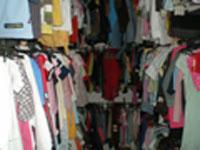Age of Consumer Ends, But Not in Russia
Research carried out in 12 of the largest European countries shows clear changes in the populations’ consumer habits. Europeans are striving to spend less, to buy natural products, and are not embarrassed to obtain goods second-hand. In

According to data gathered during Observatoire Cetelem’s 21st yearly survey, the intention to save more and spend less has entered the mainstream in
“After the stress test of European economies in
The study was carried out in 12 of the largest European countries: in Germany, Belgium, Spain, France, Hungary, Italy, Poland, Portugal, the Czech Republic, Great Britain, Russia, and Slovakia. It is notable that intentions to save predominate in the 4 major southern European countries –
Meanwhile, on average 53% of Europeans plan to increase their outgoings, whereas a year ago such “spendthrift” citizens numbered 65%. The desire to increase spending decreased particularly sharply in
At the same time, a change of mood and endeavors to put aside money has developed particularly drastically in
In
In
“Russians, Spaniards, and the Portuguese are not supporters of such purchases: the risk of being deceived and receiving a worse quality product are more significant for them than the possible advantages”, with 67% of surveyed Russians taking such a view, and 38% considering that previously owned goods could be poor quality. At the same time, 37% of Russians consider buying used goods to be “a good method of consuming more”, RIA Novosti writes.
A new type of consumer is also appearing, who can nominally be called a “buyer-seller”. “The study shows that people’s intentions to sell used goods continue to grow”, reports say. On average in Europe 39% of the population bought second hand cultural goods, in the Russian Federation – 20%; cars – 30% on average, compared to 18% in our country; clothing – 27%, compared to 13%; toys – 22%, compared to 9%, writes Finmarket.
One more characteristic which is still chiefly a western one is ‘ecologisation’ of consumption, notwithstanding the fact that those who openly do great damage to the environment also dress in “green clothes”. In Europe, 63% of those asked use recycled paper (43% in
Sergey Nikolayev
Pravda.Ru
Translated by Isobel Palmer
Subscribe to Pravda.Ru Telegram channel, Facebook, RSS!


